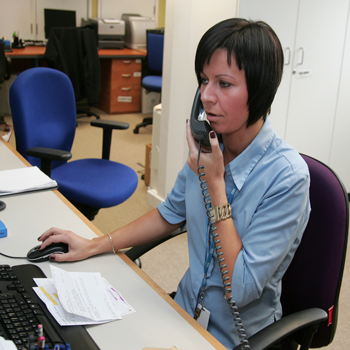Increasing patient access with telephone surgeries
The Challenge
In Newham there are just 53 GP practices to serve a growing population of over 300,000 patients. This presents a huge challenge to deliver high quality care with limited resources.UCLPartners and Newham Clinical Commissioning Group are working together to equip primary care staff in Newham with valuable skills in improvement science. The aim of this work is to embed a culture of continuous improvement, enabling staff to work more effectively.One GP practice in the borough, which serves 4,500 patients, has embraced quality improvement methodology. Using the Institute for Healthcare Improvement’s model staff at the practice investigated barriers to patient access and reviewed the use of GPs time.As a result, the practice has implemented telephone surgeries in order to increase patient access to medical appointments and capitalise on the skill mix of staff working at the surgery.

Facing the challenge
The Project Surgery in Newham has introduced telephone consultations as a first point of contact for all patients seeking a medical appointment. The only exception to this is hearing impaired patients, who are automatically allocated a face to face consultation. All telephone consultations are conducted by GPs or Advanced Nurse Practioners and last a minimum of seven and a half minutes per patient.These telephone consultations are held from in the morning from 8.30 – 11.45am and again in the afternoon from 3 – 5.15pm.The phone system Babblevoice has been installed to support the telephone consultations. The system is medico-legal compliant as calls are recorded, has unlimited lines and enables staff to work remotely when necessary.

“Time is at a premium in primary care and it feels more important than ever to be able to draw on all the resources we have to hand. Changes we’ve made have enabled us to work effectively and efficiently, improving both patient and staff experience.”
Outcomes
- DNAs have reduced from 12% to 0.5%
- Patients can be seen in order of clinical priority as they are asked what the nature of their complaint is when the appointment is made
- Patient consultation time has been reduced by two and a half minutes, meaning that the practice now have five surgeries rather than four, creating an extra 20 appointment slots.
- Patient satisfaction has increased as appointment times are more flexible and waiting rooms are less crowded, with just one in four patients requiring a follow up appointment.
- The work/life balance of GPs has improved as Babblevoice has enabled them to work remotely when needed.
- Long term condition management at the practice has improved. Utilising the skills of Health Care Assistants to undertake routine checks for patients with long term conditions has resulted in a saving of GP time. GPs then run a dedicated clinic for referred patients.
Farzana’s work was supported by the NHS England General Practice Improvement Leaders Programme. Hear more from Farzana about her experiences in this video diary.